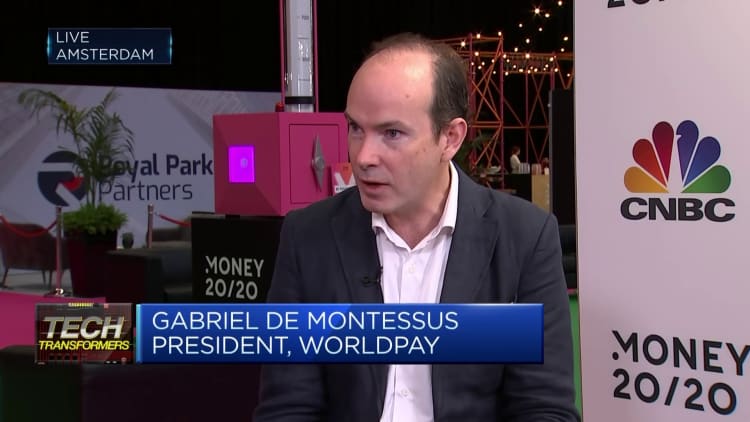Rainstar | E+ | Getty Images
It’s a scenario most people have encountered: you try to make a big or unexpected purchase on your credit card, and, at the moment you need it the most, the card gets declined.
Sometimes, it’s as simple as confirming the purchase via text message, and you can quickly complete the transaction. Other times, it’s a days-long process that involves confirmation codes, mailed letters and waiting on hold with the card company to validate that it was indeed you who wanted to buy the product.
The rate of fraud alerts is “absolutely” going up, according to Deloitte U.S. risk & financial advisory principal Satish Lalchand.
It can’t be ignored, because many of the alerts are not false alarms.
About 60% of credit card holders in 2023 experienced some sort of attempted fraud, according to Experian.
“Fraud in general across all channels, whether it’s check fraud, credit card fraud payments, the peer-to-peer payments, everything, is significantly increasing at a very rapid pace,” Lalchand said.
Global card losses attributed to fraud reached $33 billion in 2022, according to payments industry research company Nilson Report, with the U.S. market representing roughly 40% of losses. It has forecast a persistent threat that could reach nearly $400 billion in card fraud in the decade to 2032.
AI is part of the problem, but it is also part of the solution at companies including Visa.
“What’s driving a lot of this type of fraud, is the fraudsters themselves are using AI in general,” Lalchand said. “So, they are able to now move much faster.”
In the past, cybercriminals could open five to ten accounts a day. Now, it’s hundreds, if not thousands of accounts, thanks to advancements in artificial intelligence.
But at the same time AI is helping to detect potentially problematic transactions, with the downside of many cases turning out to be false alarms.
“When we come down to credit cards, financial institutions are investing more in the concept of fraud and fraud modernization, replacing older technology and having better fraud detection capabilities, and retuning their alerts,” Lalchand said. “That’s also causing a lot more on the detection side to go up.”
More personal data is being stolen
Michael Bruemmer, Experian vice president and head of its global data breach resolution and consumer protection division, says a lot more fraud is being done in other ways than stealing your credit card number, using other portions of your financial background, identity…
Click Here to Read the Full Original Article at Top News and Analysis (pro)…


